Australia’s most influential people in the cattle industry: Jason Strong, Andrew Twiggy Forrest, Lucinda Corrigan, John McKillop
The Weekly Times has named the most influential people in the Australian beef industry. Here’s the top five as voted by you.
The beef cattle industry has been one of the hottest topics in Australian agriculture this year.
From record-breaking prices, to low herd numbers and how to tackle its goal of being carbon neutral by 2030, the industry hasn’t been far from the headlines.
The Weekly Times looks at some of the “kings and queens” of the Australian beef cattle industry and what makes them so influential, as chosen by us.
We asked readers to vote for who they believe is the most influential.
Coming in at number one was Hugh Killen of AACo, with 22 per cent of votes, followed by Patrick Hutchinson from AMIC on 15 per cent of votes.
Tracey Hayes was number three with 13 per cent of votes, The Consumer was voted at number four with 12 per cent of votes and Andrew ‘Twiggy’ Forrest was number five with 7 per cent of votes.
You can still have your say in our poll below, or tell us if we have missed someone that should be on the list.
JASON STRONG, MEAT AND LIVESTOCK AUSTRALIA MANAGING DIRECTOR
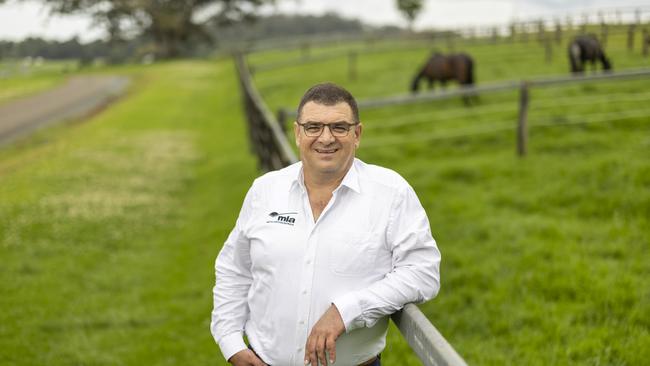
Undoubtedly Jason Strong has one of the biggest jobs in Australia’s red meat industry as managing director of MLA, the research, development and marketing body for the Australian red meat and livestock industry.
“It’s an interesting challenge — the only way you can actually be successful in my current role is if the industry is more profitable and productive,” he told the AgJournal recently.
And he isn’t afraid to speak up on behalf of the industry, tackling issues such as market access, the “fake” meat debate, carbon emissions and consumption.
Mr Strong recently said some challenges the industry faced included keeping domestic consumers happy paying more for red meat (as prices continue to rise) and climate change.
He said the livestock industry was more than halfway to realising its ambitious goal of being carbon-neutral by 2030.
ANDREW ‘TWIGGY’ FORREST, FORTESCUE GROUP METALS CHAIRMAN
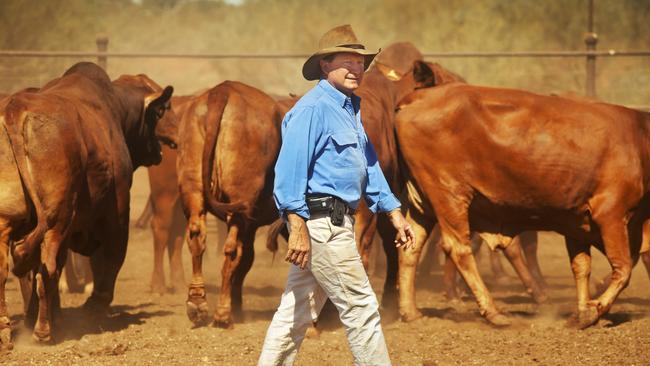
With a net worth of $26.22 billion, according to Forbes.com, Australian mining magnate Andrew ‘Twiggy’ Forrest operates a beef cattle business across about 1.5 million hectares of Western Australia.
The former chief executive and current non-executive chairman of Fortescue Metals Group, Dr Forrest’s beef holdings include Minderoo Station — the Pilbara property on which he grew up.
And while he may have made his initial fortunes in mining, Dr Forrest is passionate about the beef industry and isn’t afraid to speak up or take action for what he believes in.
Recently Dr Forrest took out a series of newspaper advertisements criticising JBS’s animal handling processes, calling on the company to adopt a “no pain no fear” approach to killing animals and has been making investments in green energy, while ridiculing Australian politicians for not believing in the evidence of climate change.
BRENT EASTWOOD, JBS AUSTRALIA PRESIDENT AND CHIEF EXECUTIVE
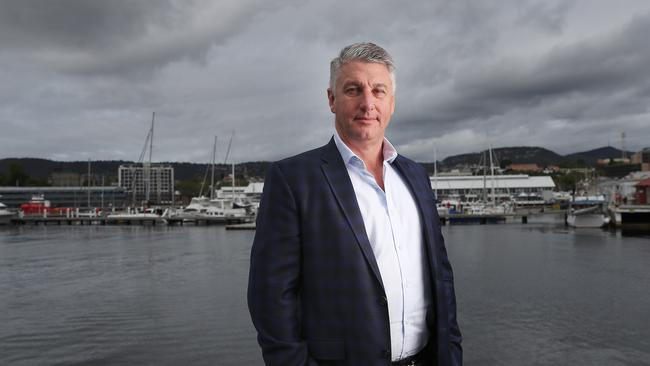
As president and chief executive of the Australian arm of multinational beef giant JBS, Brent Eastwood can greatly influence markets and prices across the country and the world.
It’s a role Mr Eastwood has been in for almost a decade, and in that time the meat processing giant has grown its footprint and even expanded into aquaculture, with the purchase of Huon Aquaculture earlier this year.
JBS Australia is the nation’s biggest meat processing company, exporting products to more than 80 countries.
The company operates 10 abattoirs and six feedlots in Australia and has the capacity to process more than 8000 cattle and 21,000 small stock, including sheep, a day and employs 12,000 staff across Australia.
THE CONSUMER

In a year when cattle prices have skyrocketed — and red meat prices on retails shelves have gone up accordingly — the consumer is especially important in the beef industry.
Some would argue “the consumer” is THE MOST influential for the industry as they are the people who will buy, or not, the product everyone else on this list is striving to produce, process or market.
TESS HERBERT, GUNDAMAIN PASTORAL DIRECTOR AND AUSTRALIAN BEEF SUSTAINABILITY FRAMEWORK CHAIR
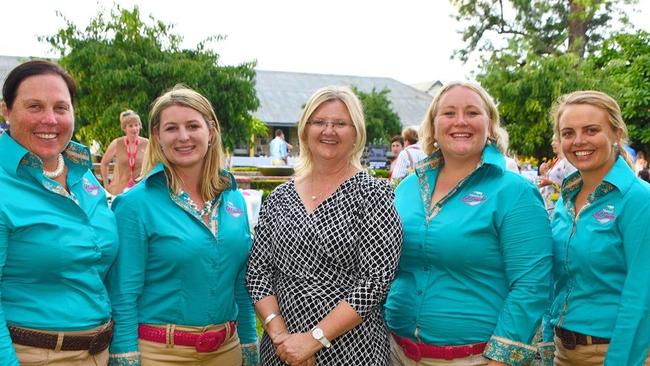
Tess Herbert has helped pave the way for women in the lotfeeding industry.
While owning and operating two feedlots in NSW, with a combined capacity of 12,500 cattle, and a mixed-farming operation, Ms Herbert was the first female to become president of the industry’s peak body, the Australian Lot Feeders’ Association, a role she held from 2015 to 2018 — although she was on the board since 2009.
Now Ms Herbert is the chair of the steering committee for the Australian Beef Sustainability Framework, which was developed by the beef industry in 2017 to meet the changing expectations of customers, investors, and other stakeholders.
And she has been a strong advocate for the framework’s importance.
SCOTT DE BRUIN, MAYURA STATION MANAGING DIRECTOR
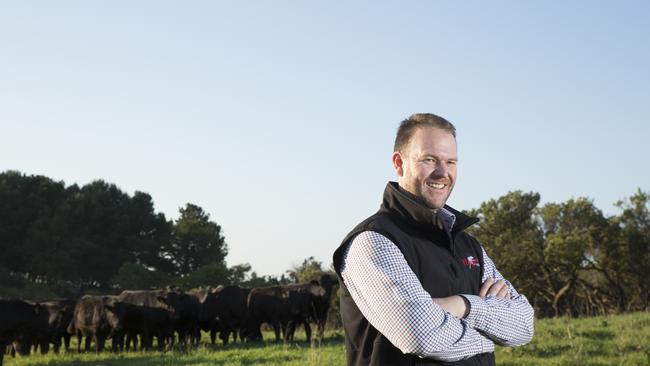
In less than two decades Scott de Bruin and his family have turned a conversation about the benefits of eating Wagyu beef into a multimillion-dollar vertically integrated operation.
Located on the South Australian Limestone Coast, Mayura Station is a multifaceted operation from breeding Wagyu cattle, to feeding them in their own feedlot and serving it up in their restaurant, as well as delivering it to the world.
Mr de Bruin is big on using performance data, which has set their herd apart as one of the most elite in the world, with their genetics highly sought.
Mayura has one of the top performing Wagyu bulls in the breed, with Mayura Itoshigenami Jnr, their foundation sire and the “backbone” of their branded beef operation.
Last year three semen packages from Itoshigenami Jnr averaged $55,333, topping at a world-record price of $68,000 per straw.
HUGH KILLEN, AACO MANAGING DIRECTOR AND CHIEF EXECUTIVE
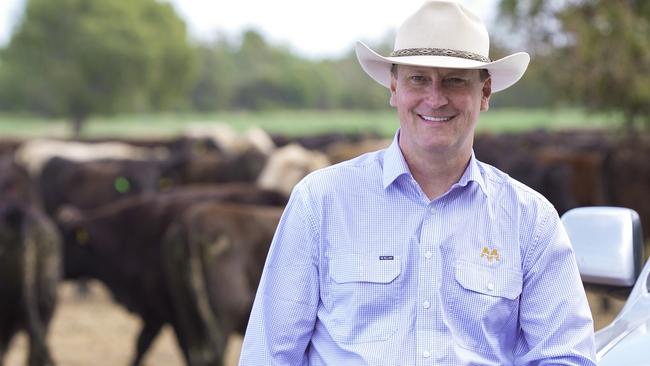
Heading up Australia’s largest pastoral company, Australian Agricultural Company, Hugh Killen has more than 25 years’ experience in global financial markets.
Since taking on the role in 2018 he has turned the performance of the company around, while dealing with droughts, floods and a pandemic.
Founded in 1824, AACo runs about 400,000 cattle across 6.4 million hectares. It is listed on the ASX and in its half-year results, posted an improved operating profit of $30 million in the six months to September, compared to $23.5m for the same period last year.
Mr Killen said the lift was driven by cuts in cost of production and higher cattle sales margins.
LUCINDA CORRIGAN, RENNYLEA ANGUS
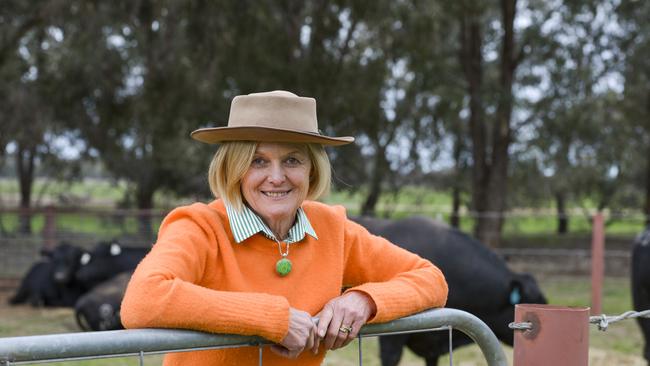
During the past 35 years, Lucinda Corrigan and husband Bryan have grown a small beef and sheep farm to become a major breeder of Angus genetics with about 3500 cows run across more than 4000ha east of Albury.
Passionate about environmental outcomes, productivity and innovation, Mrs Corrigan has held positions on many boards including most recently as chair of Farmers for Climate Action.
And it is this forward-thinking and drive for outcomes on climate change that make her so influential in that space.
While at Rennylea they are planning to become carbon neutral by 2030, in keeping with the industry’s goal, Mrs Corrigan’s leadership on climate change adaptation in the grazing industry was recognised by the National Climate Change and Research facility, being named the 2012 Climate Adaption Champion.
JOHN MCKILLOP, HANCOCK AGRICULTURE CHIEF EXECUTIVE AND RED MEAT ADVISORY COUNCIL CHAIR
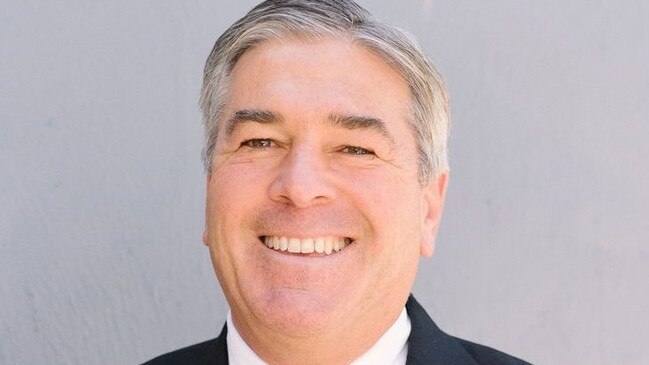
John McKillop now has one of the biggest jobs in Australian agriculture, heading up billionaire Gina Rinehart’s Hancock Prospecting agricultural interests, including as chief executive of Kidman and Co.
Mr McKillop has had an extensive career, having held multiple senior management positions in highly regarded Australian agribusinesses such as Stanbroke and Elders as well as managing director of Clyde Agriculture and chief executive of Hassad Australia.
Also the independent chair of the Red Meat Advisory Council, Mr McKillop has been open about his views about fake meat products and labelling, as well as foreign investment.
Hancock is the nation’s second-largest producer of beef with a total herd capacity of more than 340,000.
TRACEY HAYES, LIVE CATTLE CLASS ACTION FACILITATOR
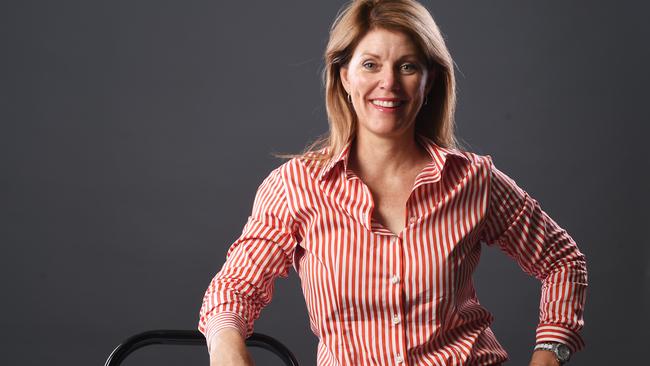
A former chief executive of the Northern Territory Cattlemen’s Association, Tracey Hayes is a senior business and industry leader and the facilitator of the successful class action against the Federal Government’s 2011 snap ban on the live cattle trade to Indonesia.
Ms Hayes was the driving force behind the class action, and despite finishing in her role at NTCA, she continued to lobby for the cattle producers, with the court decision made in 2020.
She was named the 2021 Beef Achiever at Beef Australia in Rockhamption for her work with the class action and is one of the most well-respected identities in the industry.
She currently sits on the board of the National Recovery and Resilience Agency and the Australia Indonesia Institute.
DAVID FOOTE, AUSTRALIAN COUNTRY CHOICE DIRECTOR
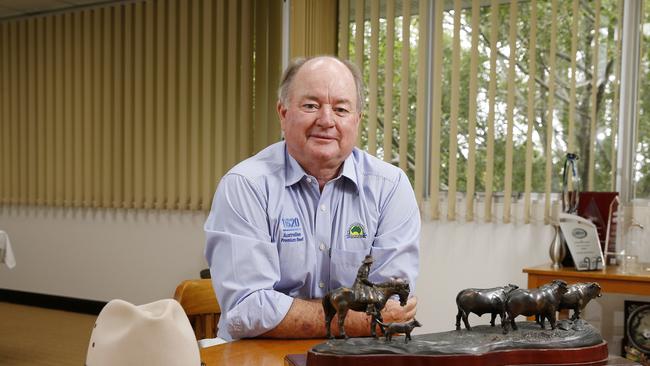
While David Foote recently transitioned out of his full-time role as Australian Country Choice’s managing director — he is now a director on the board and still on the management team — his influence during the past 40 years can’t be mistaken.
Mr Foote held the top job with ACC for 22 years.
ACC is a third-generation vertically integrated beef company owned by Trevor Lee and his family and comprises 2.42 million hectares, breeding and backgrounding up to 280,000 cattle each year.
Mr Foote has been a strong advocate for the industry and has often spoken out on the industry’s environmental challenges and animal welfare.
MARKUS RATHSMANN, CATTLE COUNCIL OF AUSTRALIA PRESIDENT
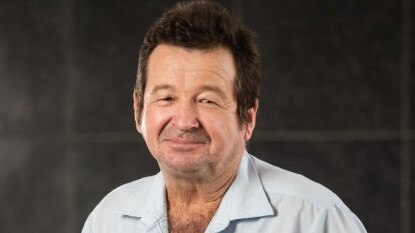
Markus Rathsmann has a lifetime of experience in the northern cattle industry, and owns and operates Mt Ringwood Station, south of Darwin, running 6000 tropical composite Brahman cattle.
Mr Rathsmann was elected president of the peak organisation representing Australia’s beef cattle producers in 2020 and aims to make sure “beef cattle producers get a fair go”.
“Australian beef cattle producers have every reason to hold their heads high and their future is bright,” he said.
TIM ROBERTS-THOMSON, TRT PASTORAL MANAGING DIRECTOR
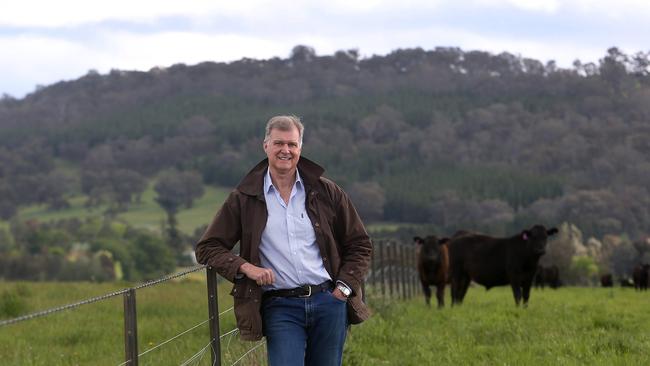
Tasmanian-born Tim Roberts-Thomson operates TRT Pastoral, which runs what is understood to be one of the largest privately held Angus cattle herds in Australia.
With sustainability a key focus for TRT Pastoral, the company has been a long-time investor in Australian agriculture, with its holdings across Victoria and Tasmania now totalling 17,500ha.
Mr Roberts-Thomson recently purchased 6000ha of the historic Woolnorth aggregation near Smithton, in northwest Tasmania, from the controversial Chinese-owned Van Dairy Limited.
The deal is believed to be one of the single biggest farmland sales to domestic family interests ever in Australia and Mr Roberts-Thomson said it would see them increase breeding cow numbers to 17,000 head.
TROY SETTER, CONSOLIDATED PASTORAL COMPANY CHIEF EXECUTIVE
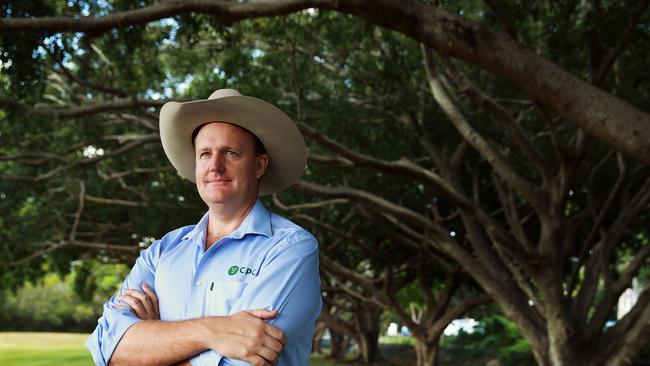
Renowned for being one of the top cattlemen and leaders in the country, Troy Setter has been in the top job at Australia’s largest private beef producer since 2014.
CPC now runs 300,000 cattle across 3.6 million hectares in the Northern Territory and Western Australia as well as holding a 90 per cent interest in Juang Jaya Abdi Alam which owns and operates two feedlots in Indonesia.
He’s a big supporter of the live export industry and is chairman of LiveCorp.
Mr Setter has completed the Agribusiness program at Harvard Business School and the Australian Institute of Company Directors Course.
PATRICK HUTCHINSON, AUSTRALIAN MEAT INDUSTRY COUNCIL CHIEF EXECUTIVE
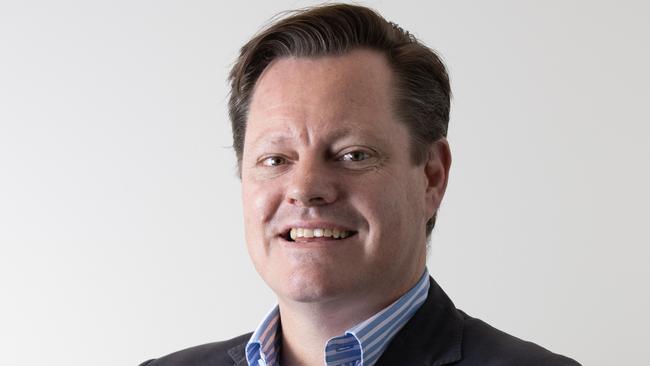
Patrick Hutchinson has been working within the Australia meat and livestock industry for most of his life and is a well-respected, strong voice for the industry.
Mr Hutchinson headed up the first iteration of integrity systems at Meat and Livestock Australia, where he designed, developed and delivered some of Australia’s major livestock integrity programs, including national vendor declarations and the national livestock identification system.
In 2017 he took on the job as chief executive of Australian Meat Industry Council, the peak industry council that represents retailers, processors and smallgoods manufacturers.
Mr Hutchinson isn’t afraid to tackle issue head on, particularly in the past two years with Covid-19 restrictions and shutdowns impacting the industry.





